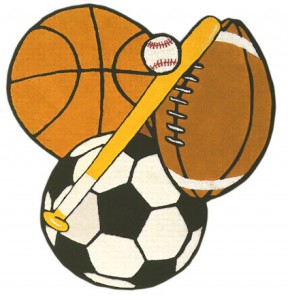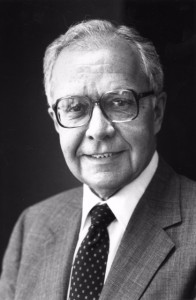Once We Know, We’ll Know What To Do
In a Facebook post last Saturday, after reading “What protesters say is fueling their anger,” I wondered what I could do to help eliminate racism, which is causing so much harm to our collective humanity. I wasn’t sure what to do first.
As a law professor and member of the Sports Lawyers Association (including 2 years as its president and 18 years on its board of directors) for 30+ years, I’ve had the good fortune of getting to know and work with many persons of color as students and professional colleagues. I’ve become friends with many of them. During the past couple days, I learned that I didn’t know some of them very well.
On Sunday, I read a Facebook post by a former student stating: “Black people need your empathy. Put yourself in my shoes. I jog nearly everyday in the suburbs of North Dallas, but I run with my dog because I know that I somehow appear ‘less intimidating’ to the general public as a black man running with our family pet. . . . I have three kids – two of which are boys. I fear the day that I am forced to have the conversation with them that many Americans see them as a threat simply because of the melanin in their skin. . . . [O]ver the summer before I went to college, I had a police officer pull a gun on me in the 90s when he pulled me over simply because he said I didn’t ‘belong in this neighborhood’ where I actually grew up. He said ‘give me a reason’ to pull the trigger. I was merely a teenager with a gun pointed at the left side of my head during a traffic stop. I recall that day like it was yesterday.”
I responded: “Very sorry you personally experienced such horrifying racism (like so many others). It’s appalling, and NO human being should be subjected to and have to live in fear of it happening again! I hear you and strongly agree that racism must be publicly condemned, most especially by whites.”
He replied: “Thank you. I appreciate your awareness of the situation. . . . Have an intentional conversation with your own friends and family, on my behalf.”

 On April 19th I participated in a lively panel discussion debating the pros and cons of paying Division I Football Bowl Championship football and men’s basketball players for their services, hosted by The Ohio State University Sports & Society Initiative, which was recently started by its College of Arts & Sciences. Despite the commercialized nature of these sports, I advocated that college student-athletes should not receive economic benefits based on their playing ability, including cash stipends, in excess of the full cost of attendance at their respective universities. In my view, there should be greater emphasis on ensuring they receive a meaningful education and earn a college degree that well prepares them for a career other than professional sports, which could include lifetime free tuition and cash bonuses for earning an undergraduate degree. Other panelists included sports economist Andrew Zimbalist, who expressed substantially the same views, as well as Joe Nocera, a New York Times writer, and Vince Doria, a former ESPN senior vice president, who both asserted that college football and basketball players should be paid based on their individual athletic ability and accomplishments. A video of this panel discussion along with a second panel of former Ohio State football, men’s and women’s basketball players (including Maurice Clarett, Lawrence Funderburke, and Shawn Springs), and a women’s golfer discussing this issue
On April 19th I participated in a lively panel discussion debating the pros and cons of paying Division I Football Bowl Championship football and men’s basketball players for their services, hosted by The Ohio State University Sports & Society Initiative, which was recently started by its College of Arts & Sciences. Despite the commercialized nature of these sports, I advocated that college student-athletes should not receive economic benefits based on their playing ability, including cash stipends, in excess of the full cost of attendance at their respective universities. In my view, there should be greater emphasis on ensuring they receive a meaningful education and earn a college degree that well prepares them for a career other than professional sports, which could include lifetime free tuition and cash bonuses for earning an undergraduate degree. Other panelists included sports economist Andrew Zimbalist, who expressed substantially the same views, as well as Joe Nocera, a New York Times writer, and Vince Doria, a former ESPN senior vice president, who both asserted that college football and basketball players should be paid based on their individual athletic ability and accomplishments. A video of this panel discussion along with a second panel of former Ohio State football, men’s and women’s basketball players (including Maurice Clarett, Lawrence Funderburke, and Shawn Springs), and a women’s golfer discussing this issue  I remember Professor Jim Ghiardi with great fondness and respect. Jim was very welcoming to me when I joined the Marquette law faculty as the director of the National Sports Law Institute in 1999, and he made significant contributions to the development of the NSLI (and our Sports Law program) as a longtime member of its Board of Advisors and one of its strongest supporters. I always appreciated his periodic visits to my office to offer advice and suggestions about building their quality and reputations, which he conveyed with a big smile and a twinkle in his eye. He’s one of the pillars that established a solid foundation for the NSLI and our Sports Law program as well as Marquette Law School. May he rest in peace while his memory continues to inspire us.
I remember Professor Jim Ghiardi with great fondness and respect. Jim was very welcoming to me when I joined the Marquette law faculty as the director of the National Sports Law Institute in 1999, and he made significant contributions to the development of the NSLI (and our Sports Law program) as a longtime member of its Board of Advisors and one of its strongest supporters. I always appreciated his periodic visits to my office to offer advice and suggestions about building their quality and reputations, which he conveyed with a big smile and a twinkle in his eye. He’s one of the pillars that established a solid foundation for the NSLI and our Sports Law program as well as Marquette Law School. May he rest in peace while his memory continues to inspire us.